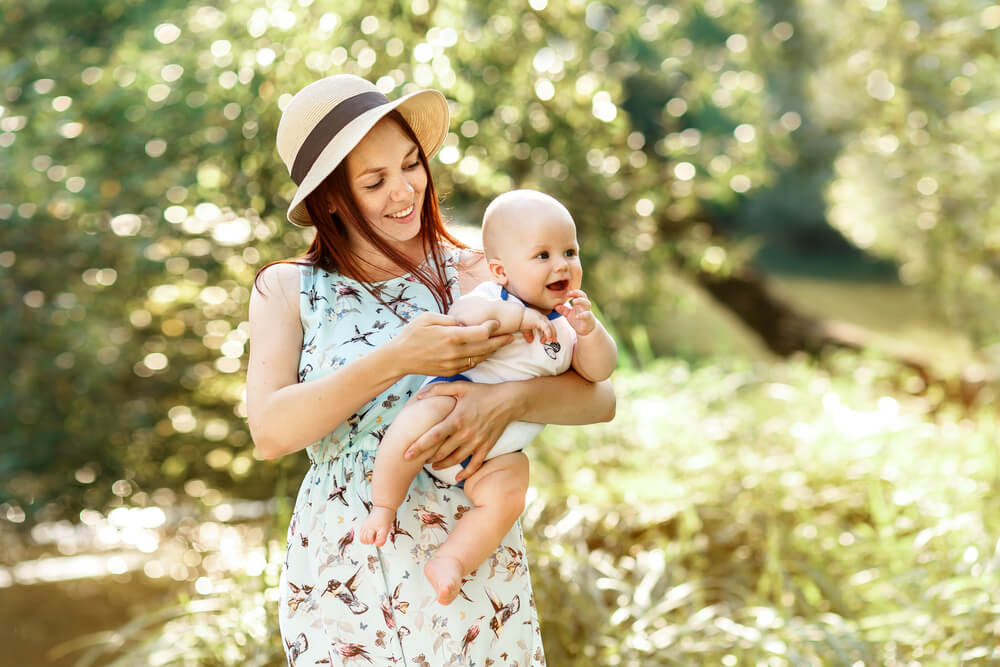
When Can You Take Your Newborn Out Of The House
1 Jul 2022 | 4 min Read
Tinystep
Author | 2574 Articles
This is perhaps one of the most contentious questions that one can ask within the overlapping realms of parenting and neo-natal care (provided by the medical fraternity). It is contentious in the sense that it does not have an objective and concrete answer that can be asserted as the truth. The medical and parental community are split on this subject, and both viewpoints have merit to their beliefs, and when these viewpoints are assessed individually, we can arrive at a conclusion regarding what we believe is the right take on this question.
Some sections of the medical community believe that it is unwise to take the child outdoors in the first 6 to 8 weeks, as it may prove damaging to their health. This is quite true considering that the immune system of babies is a lot weaker, and as a result, they stand an elevated risk of catching diseases (higher than adults). Keeping the heightened risk of disease contraction in mind, it is feasible to avoid going outdoors in the first two months of your baby’s life. There is not so much a risk associated with the outside as there is a risk associated with people outside who end up spreading their own diseases, and so, this must be taken into consideration when deliberating whether you should take your newborn out of your house.
Some things to take into consideration while taking your child outside are:
1. Ensure that your child is not exposed to a lot of heat and sun
This has an additional harm as well, as babies who are exposed to a lot of sunlight and heat are at a greater risk of contracting skin cancer later in their lives. So, do not take them outside if it is really hot. The reason being, it causes burns because their skin is particularly sensitive and soft, and what may be considered slightly above ordinary warmth or heat may be too much for your young ones.
2. Do not take them out in cold or hot weather
For the reasons mentioned above, it is not wise to take them out in hot weather, and for the same reasons, it is not wise to take children out of the wintry weather as well, as sensitive and soft skin does not go well with extreme weather conditions. Lower temperatures can also give the child a serious case of the sniffles, and while the common cold may seem relatively harmless, it is still dangerous for a baby’s immune system.
3. Be sure not to overdress or underdress when it comes to your baby
Overdressing can lead to increased sweating, and higher body temperatures, which are still dangerous for the baby, making them irritable. Underdressing, on the other hand, can lead to pretty harmful outcomes as well, depending on what the weather is outside. If it is cold, then it might cause the baby to catch a cold, and if it is warm, it may cause the child to develop burns.
4. Be wary of the situations in your region
If it is the flu season, or if a particular disease is growing rampant in your area, then it’s better if the child stays indoors. Naturally, considering the child’s weaker immune system, it is not advisable to take your child outdoors during those times.
5. Parents, always carry a blanket with you when you go out
In the eventuality where you decide to leave your home, you need to have kept the various possibilities in mind. Seeing as to how a change in weather conditions is entirely likely, it is important to carry a blanket to protect your baby from any rough winds or hot rays of sunlight.
There really is nothing wrong with getting some fresh air outside, but be careful of all the things mentioned above and you can have a wonderful time with your baby!
A


Suggestions offered by doctors on BabyChakra are of advisory nature i.e., for educational and informational purposes only. Content posted on, created for, or compiled by BabyChakra is not intended or designed to replace your doctor's independent judgment about any symptom, condition, or the appropriateness or risks of a procedure or treatment for a given person.
